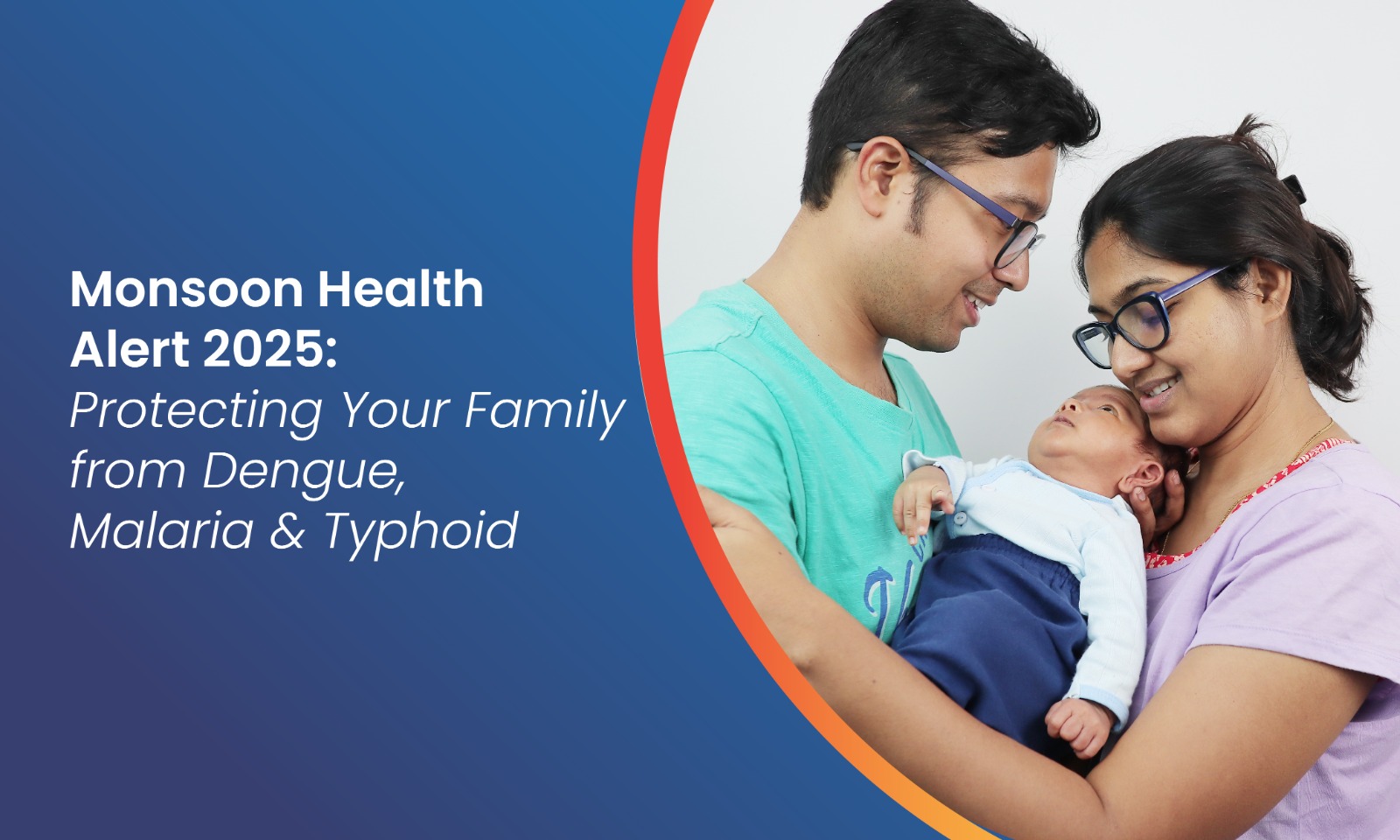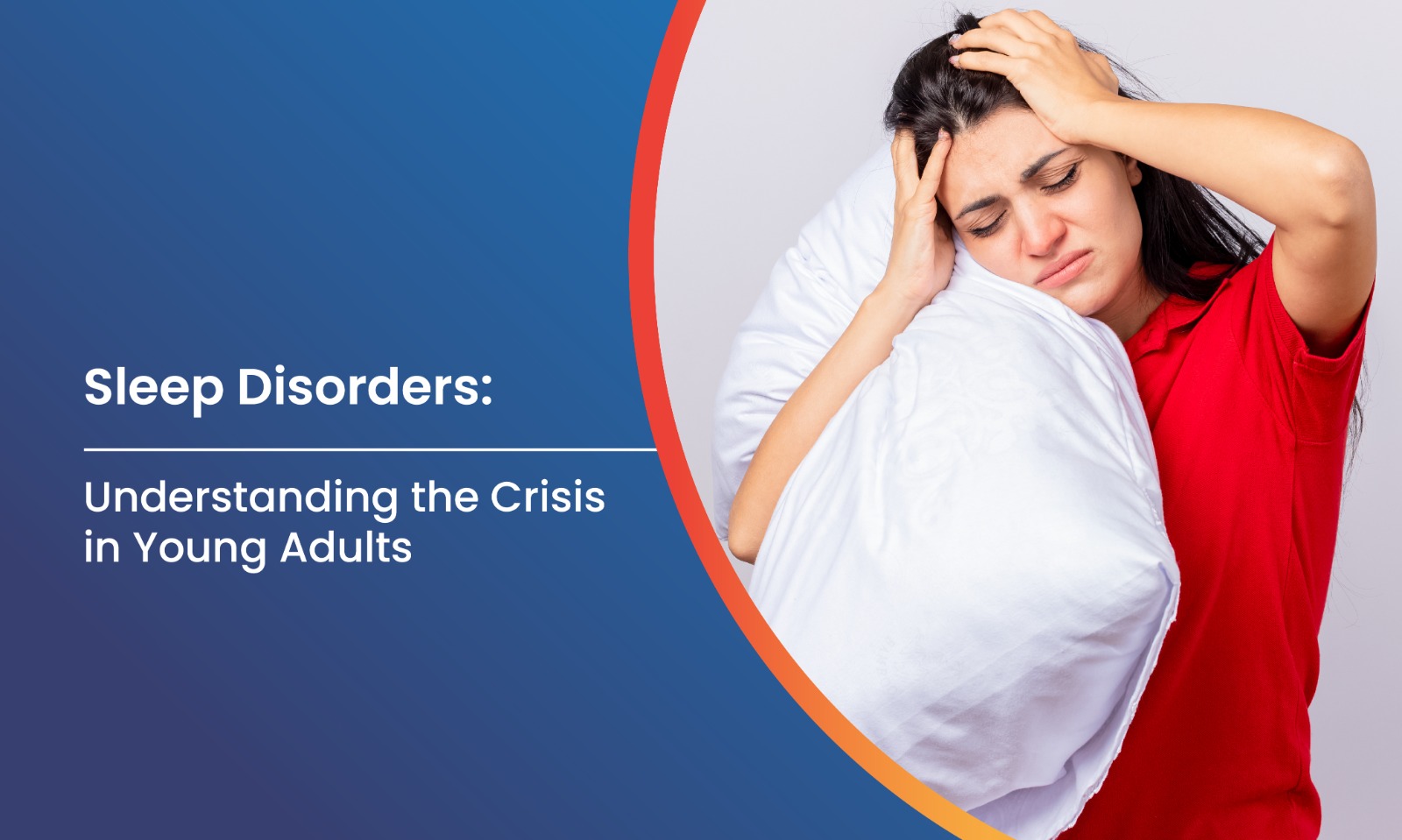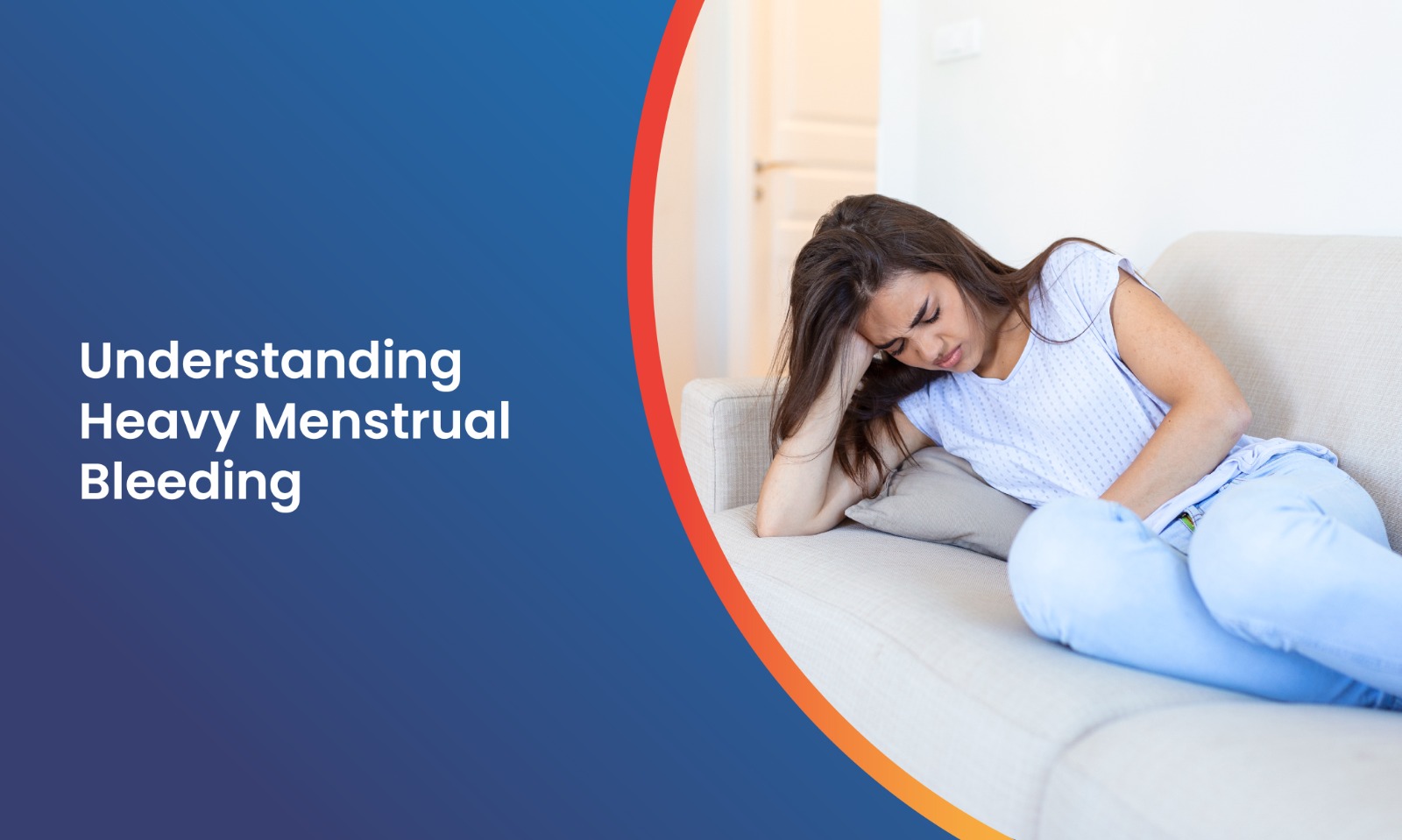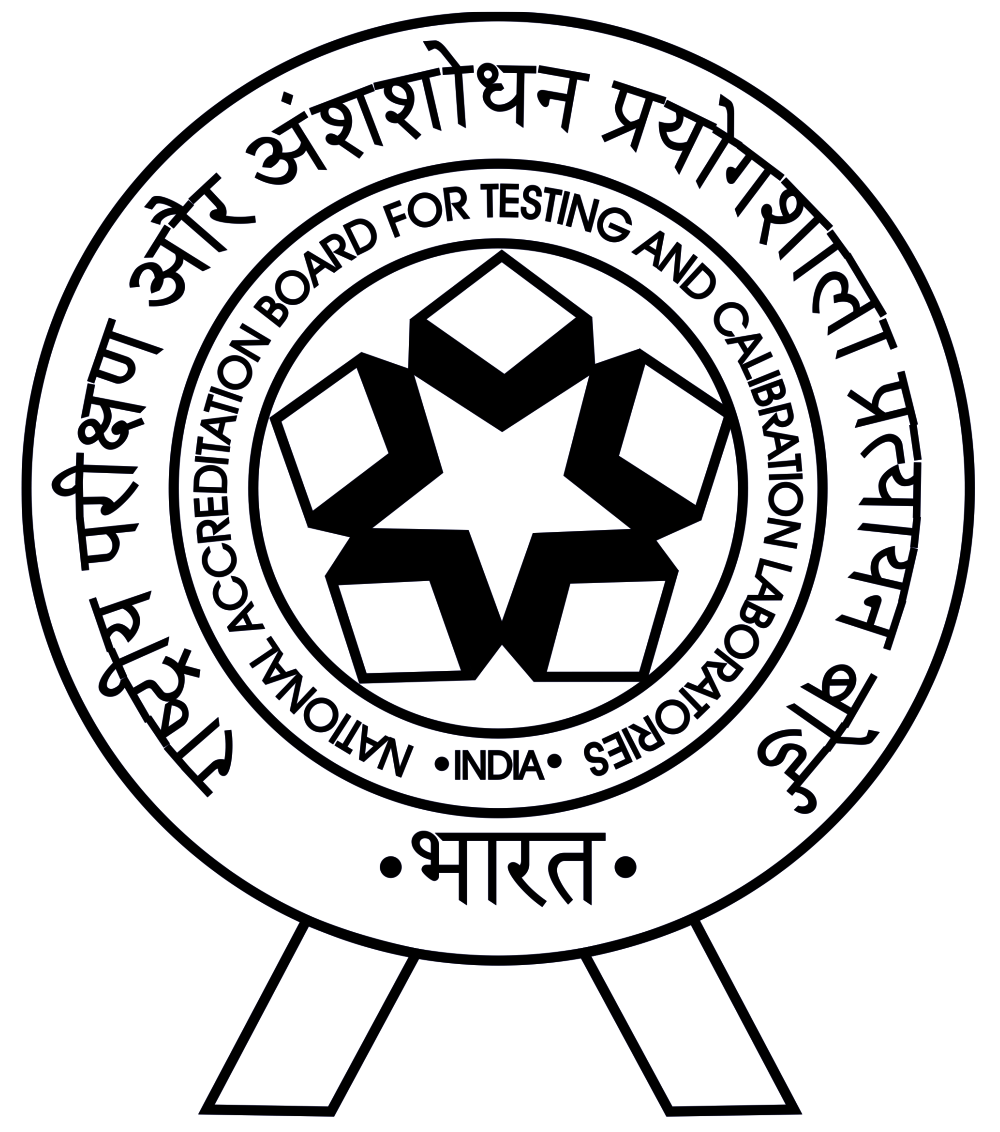Monsoon Health Alert 2025: Protecting Your Family from Dengue, Malaria & Typhoid

Monsoon Health Alert 2025: Protecting Your Family from Dengue, Malaria & Typhoid
Monsoon, the season that brings relief to hot summer days, fills the air with freshness and rejuvenation. However, this time is also favourable for certain diseases to spread rapidly due to waterlogging and contaminated water. Proper information and awareness regarding these infectious diseases are much needed to protect your family and friends.
In India, the most common diseases during rainy days are Dengue, Malaria, and Typhoid, which affect thousands of people every year. These diseases are major causes of illness and need to be identified and treated timely. Understanding symptoms, transmission and prevention plays a major role in ensuring a healthy and enjoyable monsoon for your loved ones.
Table of Contents
- Understanding Monsoon Illnesses: Why the Risk Rises
- Dengue: Symptoms, Prevention, and Care
- Malaria: Recognising and Reducing the Threat
- Typhoid: Waterborne Dangers
- General Monsoon Hygiene and Immunity Tips
- When to See a Doctor
- Frequently Asked Questions
Understanding Monsoon Illnesses: Why the Risk Rises
The arrival of monsoon transforms the environment, creating ideal breeding grounds for mosquitoes and increasing the risk of water contamination. Stagnant water accumulates in open spaces, flower pots, and discarded containers, providing mosquitoes with places to lay eggs. At the same time, heavy rains can contaminate water supplies, raising the risk of waterborne diseases like typhoid.
- Mosquitoes thrive in humid, wet conditions, multiplying rapidly during the rainy season.
- Poor drainage and waterlogging in urban and rural areas contribute to mosquito breeding.
- Flooding and runoff can contaminate drinking water, spreading bacteria and viruses.
Dengue: Symptoms, Prevention, and Care
Dengue is a viral infection transmitted by the Aedes aegypti mosquito, which breeds in clean, stagnant water commonly found during monsoon. The disease can escalate quickly, sometimes leading to severe complications if not managed promptly. Recognising early symptoms and taking preventive steps are vital for family safety.
Symptoms:
- Sudden high fever, severe headache, pain behind the eyes
- Joint and muscle pain, nausea, vomiting, and skin rashes
- Severe cases may cause bleeding, low platelet count, and shock
Prevention Tips:
- Clean standing water in and around your home (flower pots, buckets, coolers, tyres).
- Use mosquito repellents and nets, especially during early morning and late afternoon.
- Wear full-sleeved clothing and long pants to minimise skin exposure.
- Install screens on windows and doors to keep mosquitoes out.
- Regularly change water in vases, bird baths, and pet bowls every two days.
- Introduce larvivorous fish in ornamental ponds to control mosquito larvae.
Care:
- Seek medical attention if you notice symptoms of dengue, especially persistent fever or bleeding.
- Ensure adequate hydration and complete rest for anyone affected.
- Avoid self-medication; use only doctor-prescribed treatments.
Malaria: Recognising and Reducing the Threat
Malaria is caused by the Plasmodium parasite, transmitted by the bite of infected female Anopheles mosquitoes. The risk of malaria rises during the monsoon due to increased mosquito breeding in stagnant and dirty water. Early detection and prevention can save lives and prevent complications.
Symptoms:
Intermittent fever with chills and sweating
Headache, nausea, vomiting, and body aches
Severe cases may lead to anaemia, jaundice, and organ failure
Prevention Tips:
- Use mosquito nets for sleeping, especially for children and the elderly.
- Apply mosquito repellent creams or lotions on exposed skin.
- Wear light-colored, full-sleeved clothing to reduce mosquito bites.
- Regularly clean and empty containers that collect water (coolers, tanks, gutters).
- Ensure proper drainage to prevent water stagnation around your home.
- Take doctor-prescribed prophylactic medication when traveling to malaria-prone areas.
Care:
- Consult a doctor immediately if malaria symptoms develop.
- Follow the full course of antimalarial medication as prescribed.
- Monitor for warning signs such as persistent vomiting, confusion, or breathing difficulties.
Typhoid: Waterborne Dangers
Typhoid is a bacterial infection caused by Salmonella typhi, commonly spread through contaminated food and water during the monsoon. Poor sanitation and improper food handling increase the risk, making hygiene a top priority in these months. Preventing typhoid requires vigilance in food and water safety.
Symptoms:
- High fever, headache and stomach pain
- Weakness, loss of appetite, diarrhoea or constipation
- Sometimes, a rash of flat, rose-colored spots
Prevention Tips:
- Drink only boiled, filtered, or bottled water; avoid ice from unknown sources.
- Wash hands thoroughly with soap before eating and after using the toilet.
- Avoid eating food from street vendors, especially raw or uncooked items.
- Wash fruits and vegetables thoroughly before consumption.
- Maintain clean kitchen surfaces and utensils to prevent cross-contamination.
- Encourage children to practice good personal hygiene and handwashing.
Care:
- Seek prompt medical attention if typhoid symptoms appear.
- Complete the full course of antibiotics as prescribed by your doctor.
- Ensure adequate hydration and nutritious, easily digestible food during recovery.
General Monsoon Hygiene and Immunity Tips
Maintaining overall hygiene and boosting immunity are essential to protect your family from a range of monsoon illnesses. Simple lifestyle adjustments and regular health practices can significantly impact disease prevention.
- Keep your surroundings clean and free from stagnant water to prevent mosquito breeding.
- Practice frequent handwashing, especially before meals and after returning home.
- Clean and change bed sheets, towels, and clothing regularly to prevent fungal and bacterial infections.
- Encourage a balanced diet rich in fruits, vegetables, and vitamin C to strengthen immunity.
- Ensure children’s vaccinations are up to date, including annual flu shots if recommended.
- Stay hydrated by drinking safe, clean water throughout the day.
- Dress appropriately in light, full-sleeved clothing and waterproof shoes to avoid cold and fungal infections.
When to See a Doctor
Early medical intervention is crucial for monsoon-related illnesses, as many symptoms can overlap and progress rapidly. Delaying treatment can lead to severe complications, especially in children, the elderly, and those with weakened immunity.
- If you or a family member has a high fever, severe headache, persistent vomiting, or unexplained rashes, see a doctor immediately.
- Watch for warning signs like difficulty breathing, confusion, or severe abdominal pain.
- Do not take pills themselves or ignore symptoms; consult with a doctor for an accurate diagnosis and treatment.
The monsoon season, while refreshing, brings an increased risk of illnesses like dengue, malaria, and typhoid. By staying informed, maintaining strict hygiene, and adopting preventive measures, you can protect your family and enjoy the rainy months safely. Prioritize health, act promptly at the first sign of illness, and make this monsoon a season of wellness and joy.
F&Q
Q1. How can I prevent mosquito breeding in and around my home?
Regularly empty and clean containers that collect water, such as flower pots, buckets, and coolers. Use screens on windows and doors, and introduce larvivorous fish in ornamental ponds to control mosquito larvae.
Q2. Is it safe to eat street food during the monsoon?
It is best to avoid street food during the rainy season, as water and ingredients may be contaminated, increasing the risk of typhoid and other gastrointestinal infections.
Q3. What are the first signs of dengue or malaria I should look out for?
Watch for sudden high fever, severe headache, joint pain, and rashes for dengue; intermittent fever with chills and sweating for malaria. Seek medical attention promptly if these symptoms appear.
Q4. How can I boost my family’s immunity during monsoon?
Encourage a balanced diet with plenty of fruits and vegetables, ensure adequate hydration, and keep vaccinations up to date. Maintain good hygiene and regular handwashing.
Q5. Should I use mosquito repellents for children?
Yes, but consult your paediatrician for age-appropriate repellents. Use mosquito nets and dress children in full-sleeved clothing for added protection.














